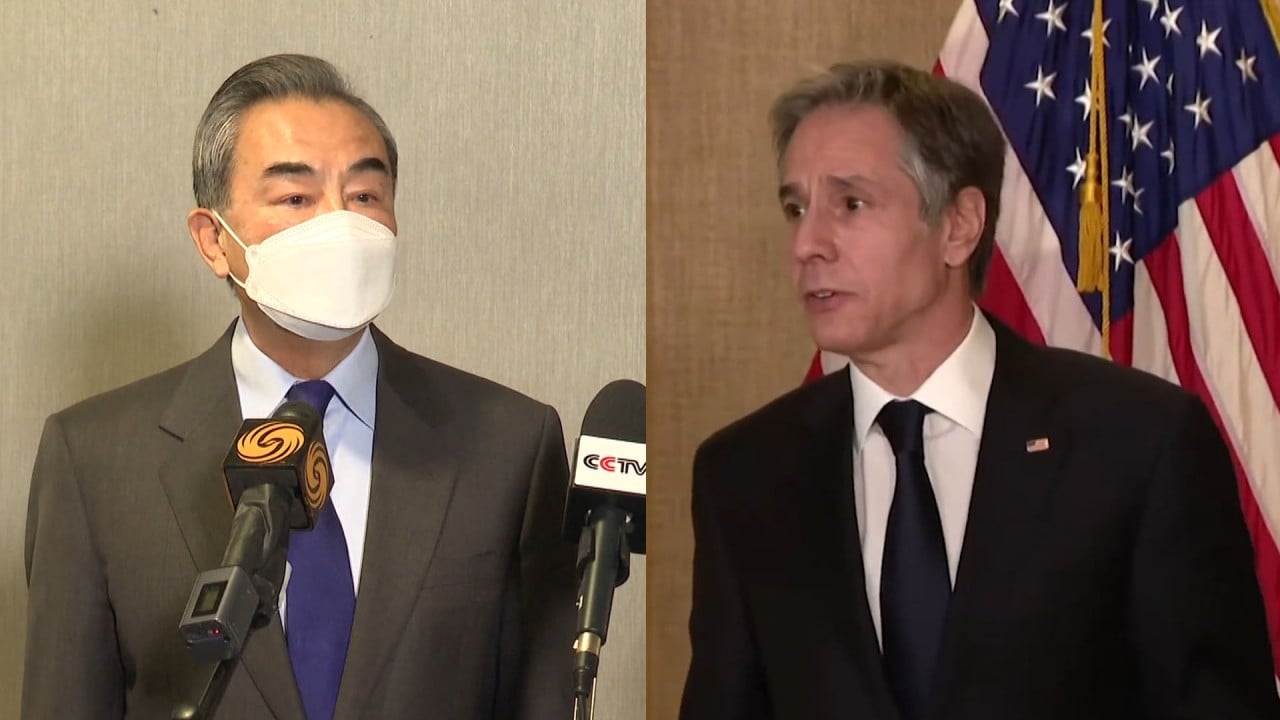
Alaska summit: what the US and China agree on, and what still divides them
- The two sides are far apart on issues such as Hong Kong and Xinjiang, which Beijing insists is none of Washington’s business
- But they have agreed to work together on issues such as climate change and regional stability
While some agreements were reached in the high-level US-China talks in Anchorage, Beijing remained firm on what it deems matters of national sovereignty, security and development.
Beijing described the talks – the first with officials from the Biden administration – as candid, constructive and helpful despite “important differences between the two sides”, according to state news agency Xinhua.
The topics ranged across issues of bilateral and international concerns.
Here is where they found common cause and agreed to disagree.
Agreement
Climate change
Both China and the United States said they would work to tackle the issue. A statement released by the Chinese side said the countries would establish a joint working group on climate change to strengthen dialogue and cooperation.

04:07
Alaska summit: China tells US not to underestimate Beijing’s will to safeguard national dignity
Coronavirus pandemic
China said the two countries could work on controlling the pandemic and post-pandemic recovery. The two sides have also discussed arrangements for their diplomats and consular staff to receive Covid-19 vaccines.
The pandemic pushed the relationship between the two sides to a new low, with officials from the Trump administration blaming China for the outbreak and using terms such as the “China virus”.
People-to-people exchanges
China, US still split on hot-button topics but agree to climate change group
Both sides have imposed restrictions on exchanges, including limiting visas for journalists and on academics. The Alaska talks included a discussion about changes to visa policies, raising hopes that these restrictions could be eased.
Regional issues
Both sides discussed issues where their interests are aligned, including Iran, North Korea, Afghanistan and Myanmar. They also agreed to cooperate in bodies such as the G20 and the Asia-Pacific Economic Cooperation forum and strengthen communication on policy issues such as economics, trade, law enforcement, the humanities, public health and cybersecurity.

Differences
Hong Kong
The city was one of the key items on the agenda, with US Secretary of State Antony Blinken saying they were “fundamentally at odds” over the issue. A day before the talks began, the US sanctioned 24 Chinese and Hong Kong officials.
But Beijing refuses to budge on matters it regards as purely domestic, including Hong Kong, and says the US should not meddle in China’s internal affairs. It says the National People’s Congress has every right to make changes to the city’s electoral system – which critics say will undermine democracy – and told Washington not to support groups it regards as separatists.
Xinjiang
It says that while Xinjiang is open to the world, it will not accept any investigation in Xinjiang based on the presumption of guilt. It has said critics of its policies are biased and want to lecture China, and argues that the US view does not represent international opinion.
US and Chinese officials clash in Alaska, but who’s at the table?
Taiwan
Beijing regards the island as a breakaway province, and has demanded that the US stop arms sales and avoid showing any support for pro-independence forces.
The Communist Party
China’s top diplomat Yang Jiechi said during the talks that China did not believe in using force to topple other regimes.
He said the Chinese Communist Party enjoyed widespread support and the US should stop interfering in China’s internal affairs as it had nothing to be proud of at a time when Black Americans were being “slaughtered”.

